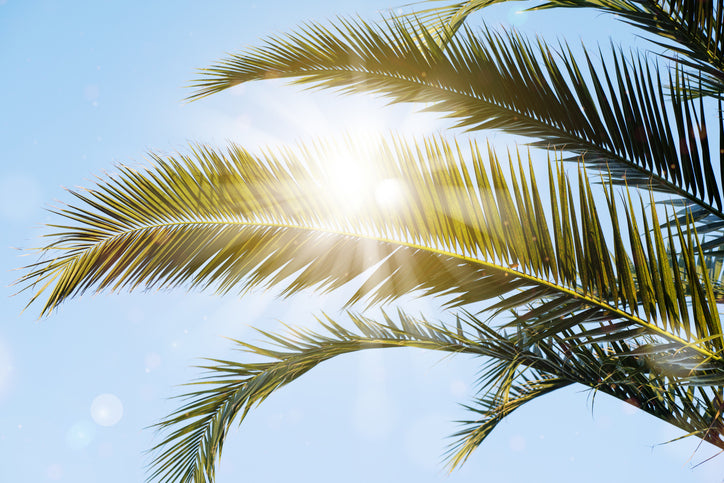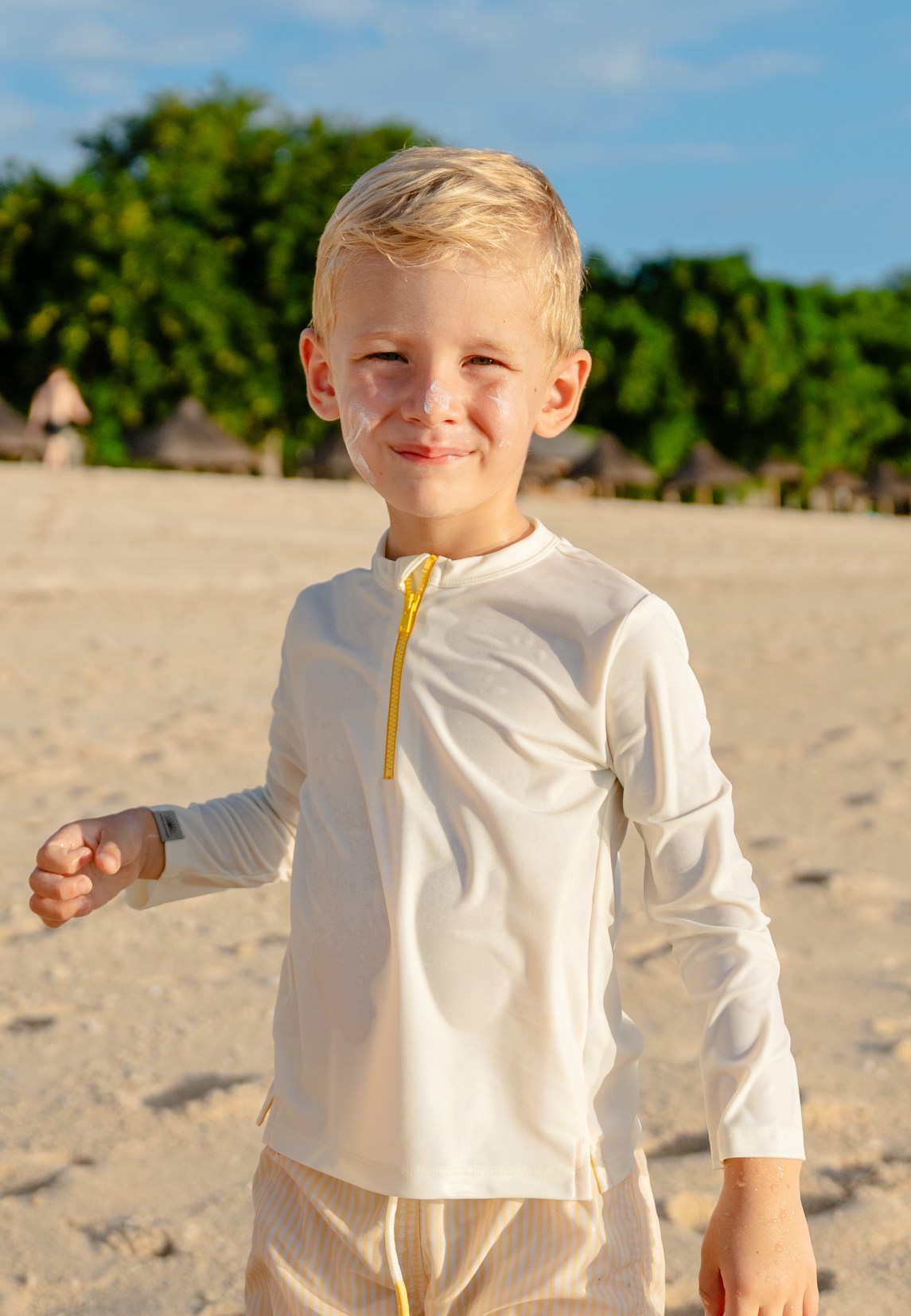sun-safe holidays: a guide to sun protection
Explore the fundamentals of sun safety with our guide, where we have curated essential information for you to remember when it comes to sun protection.

protecting our loved ones
Infant skin is thinner and more permeable than adult skin, making babies more vulnerable to both UV damage and chemical absorption. Sunscreen isn’t recommended before six months, so sun protection during this stage should rely on physical shade and UPF50+ clothing that stays in place. Wide-brimmed hats, protective eyewear, and well-designed swimsuits all contribute to effective coverage.
Consistency is key — early habits play a significant role in long-term skin health. When children grow up wearing protective swimwear, it becomes normal to them. They don’t question it, and they don’t resist it. But if sun-safe habits are introduced too late, they’re much harder to establish.

UPF50+ Protection, Explained
According to the Skin Cancer Foundation, much of the sun damage that contributes to skin cancer occurs in childhood — often before we’re even aware of it.
That’s why consistent protection in childhood matters — and why fabric is more than a style choice.
UPF50+ means a fabric has been lab-tested to block 98% of UV rays. Unlike cotton or lightweight clothing which can offer as little as UPF 5–15.
Sunlight reflects off surfaces like sand, grass, water and even concrete, which is why shade alone isn’t enough.

Suncream, which one?
While sun suits offer a reliable, carefree layer of protection, sunscreen still plays an essential role — especially on areas left exposed. But most people apply less than half the recommended amount, reducing SPF 50 to closer to SPF 15 in real-life conditions.
There are two types of sunscreen: mineral, which sits on the skin and reflects rays, and chemical, which absorbs them and releases heat. Mineral is often better tolerated by sensitive skin and works immediately; chemical takes around 20–30 minutes to activate.
Whatever you choose, reapply generously every two hours — more often if swimming or sweating. For children, a broad-spectrum SPF50 is advised, always used in combination with sun protective clothing.